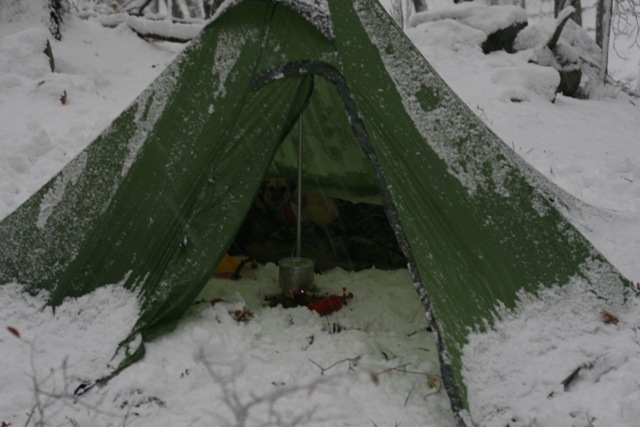Erm - my whole kit is devoted to being out in the bad weather - we live in Britain and dry weather is a rarity (especially in West Wales!)...
Get gear that works in the rain and you find that it will work in the rare dry times as well!
Learn how to get a fire lit in the rain (masses of tinder/feathersticks from inside split dead standing wood, masses of kindling from the same and pretty soon you can have a fire capable of surviving haveing a pot of stew fall into it - I know from experience!) and with a decent tarp (3x4m is my choice) you will not be bothered by the rain...
Tiny tarps give no real dry living space and wearing your waterproofs all day challenges their breathability/comfort.
Carry spare clothing - especially socks - to change into if you do get soaked
Pack a towel
Enjoy a nice "bush shower" using biodegradable soap
Get gear that works in the rain and you find that it will work in the rare dry times as well!
Learn how to get a fire lit in the rain (masses of tinder/feathersticks from inside split dead standing wood, masses of kindling from the same and pretty soon you can have a fire capable of surviving haveing a pot of stew fall into it - I know from experience!) and with a decent tarp (3x4m is my choice) you will not be bothered by the rain...
Tiny tarps give no real dry living space and wearing your waterproofs all day challenges their breathability/comfort.
Carry spare clothing - especially socks - to change into if you do get soaked
Pack a towel
Enjoy a nice "bush shower" using biodegradable soap


